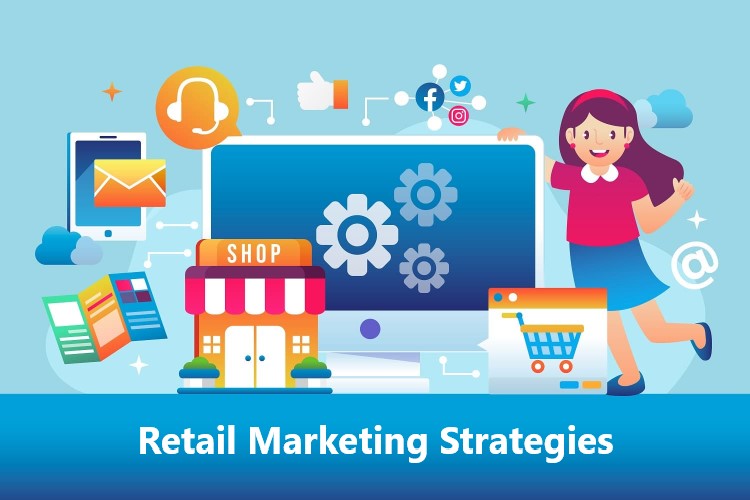
Personalized Marketing Techniques for Retailers
Personalized marketing techniques are becoming a critical part of retail marketing strategies. Retailers now use customer data to tailor product recommendations and promotions to individual preferences. With the rise of e-commerce and advanced analytics, personalization has moved beyond simply addressing customers by their first names in emails. Today, data from customer behavior, purchase history, and browsing patterns help retailers predict and suggest what a customer may want next.
Personalization is more than a trend; it drives engagement and loyalty. When you recommend products that align with a customer’s interests, they are more likely to complete a purchase. Personalization can increase average order value and improve customer retention. By using algorithms and machine learning, retailers can deliver relevant promotions that make customers feel understood.
This shift toward personalized experiences highlights the growing importance of data-driven retail marketing strategies. Customers expect businesses to anticipate their needs, and retailers that succeed in doing so will stand out. Investing in personalization technology helps retailers create a more meaningful connection with their audience, resulting in higher sales and long-term brand loyalty.
Omnichannel Retail Strategies: Bridging Online and In-Store Experiences
Omnichannel retail strategies focus on providing customers with a seamless shopping experience across both digital and physical channels. By integrating these channels, retailers can enhance customer satisfaction and retention. For example, a customer might research a product online, then visit a store to see it in person, and finally complete the purchase through an app. This cohesive experience ensures that your customers can shop however and wherever they prefer.
To bridge online and in-store experiences, you can implement options like click-and-collect, where customers purchase items online and pick them up in-store. This convenience encourages customers to engage with both your digital and physical stores. Offering consistent inventory availability across platforms and syncing customer profiles for personalized promotions also strengthens the connection between channels.
As you develop retail marketing strategies, consider how each channel complements the other. By ensuring your customers can transition easily between online browsing and in-store visits, you enhance their overall experience. This approach not only improves satisfaction but also builds customer loyalty, as people return to brands that offer flexibility and convenience.
Leveraging Social Media for Retail Brand Building
Social media platforms like Instagram, Facebook, and TikTok have become essential tools for building retail brands. These platforms allow you to engage directly with customers, showcase products creatively, and drive sales through social commerce features. Instagram’s visual nature makes it ideal for product displays, while Facebook’s wide reach helps you connect with diverse audiences. TikTok, known for its short-form video content, offers an opportunity to present your brand in a fun and engaging way, attracting younger consumers.
By integrating social media into your retail marketing strategies, you can create more dynamic brand experiences. Features like Instagram and Facebook Shops allow customers to buy products directly within the platform, reducing friction and increasing conversions. Additionally, social media platforms enable you to target ads to specific demographics, ensuring your message reaches the right people. TikTok, in particular, allows brands to go viral quickly through trends, user-generated content, and collaborations with influencers.
Social media not only helps increase brand visibility but also builds customer loyalty. Regularly interacting with your audience through comments, live streams, and user-generated content can foster stronger connections. These platforms offer valuable insights into customer preferences, which you can use to refine your retail marketing strategies and stay relevant in a competitive market.
Loyalty Programs and Customer Retention Strategies
Loyalty programs play a crucial role in retaining customers and building long-term relationships. By offering discounts, rewards, and exclusive access, you incentivize customers to return regularly. A well-structured loyalty program creates a sense of belonging, making customers feel valued and appreciated. This connection encourages them to choose your brand over competitors, helping boost repeat business and increasing their lifetime value.
A strong loyalty program can also be an integral part of your retail marketing strategies. Customers who are part of these programs tend to spend more, especially when rewarded for reaching specific milestones or given early access to new products. By offering personalized rewards based on purchase behavior, you can make the experience even more relevant to individual customers, further encouraging retention. Exclusive promotions or events for loyalty members enhance this experience and build deeper connections.
Ultimately, loyalty programs not only reward your customers but also provide valuable insights into their preferences. This data can help you refine your retail marketing strategies, allowing you to tailor future campaigns and product offerings to meet their needs. Consistently engaging your loyal customers will strengthen their relationship with your brand, resulting in long-term business growth.
The Role of Influencer Marketing in Retail
Influencer marketing has become a powerful tool for retailers looking to expand their reach and increase brand visibility. By collaborating with influencers, you can tap into their established audiences and introduce your products to potential new customers. Influencers often have highly engaged followers who trust their recommendations, making this an effective way to build credibility for your brand. Through partnerships with influencers who align with your brand values, you can position your products authentically and reach niche markets that might be difficult to access through traditional advertising.
Incorporating influencer marketing into your retail marketing strategies can also boost sales. When influencers showcase your products through reviews or tutorials, it can lead to immediate interest and purchases. This approach works particularly well for visual platforms like Instagram and TikTok, where influencers can demonstrate product use or highlight benefits in a creative and engaging way. As customers see your products used in real-world scenarios, they are more likely to trust your brand and make a purchase.
Additionally, influencer marketing helps retailers stay relevant in a competitive market. By partnering with micro-influencers or larger industry figures, you can continuously create fresh content and keep your brand top of mind. This strategy is an effective way to maintain visibility and foster ongoing relationships with customers, ultimately enhancing the effectiveness of your overall retail marketing strategies.
Data-Driven Decision Making in Retail Marketing
Data-driven decision making is transforming retail marketing strategies. It does this by enabling retailers to make informed choices based on customer data and market trends. By analyzing customer behavior, purchase history, and preferences, retailers can create targeted marketing campaigns that resonate with specific audiences. For example, personalized email campaigns and product recommendations based on past purchases increase customer engagement and drive higher conversion rates. These insights allow you to optimize how you connect with your audience, making your marketing efforts more efficient.
Market trends and analytics also play a key role in shaping product offerings and sales strategies. Retailers use sales data to identify popular products, adjust inventory levels, and even predict future demand. This approach minimizes overstock or shortages and improves overall profitability. By continuously monitoring market trends, you can adjust your product lineup to meet changing consumer needs. This ensures you stay competitive in a fast-paced retail environment.
Incorporating analytics into your retail marketing strategies gives you a clearer view of campaign performance. Metrics like customer lifetime value and return on investment (ROI) help retailers evaluate which strategies are effective and where improvements are needed. This feedback loop allows you to refine your approach and ensure that your marketing initiatives are delivering the best possible results.
Conclusion
In conclusion, effective retail marketing strategies are critical for success in today’s competitive market. By personalizing marketing campaigns and utilizing tools like social media and influencer partnerships, you can better engage your target audience. Focusing on customer loyalty programs and data-driven decision making will help you build stronger customer relationships and boost long-term profitability. As you refine your approach, keep adapting to emerging trends and technologies to stay ahead and maintain your competitive edge. A thoughtful, data-informed strategy will ensure your business thrives in an evolving retail landscape.


